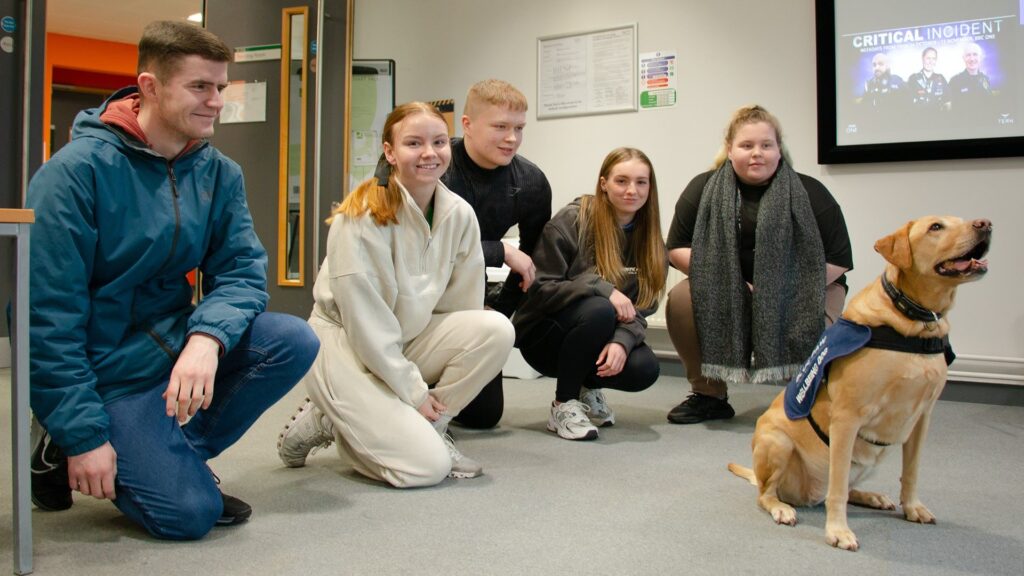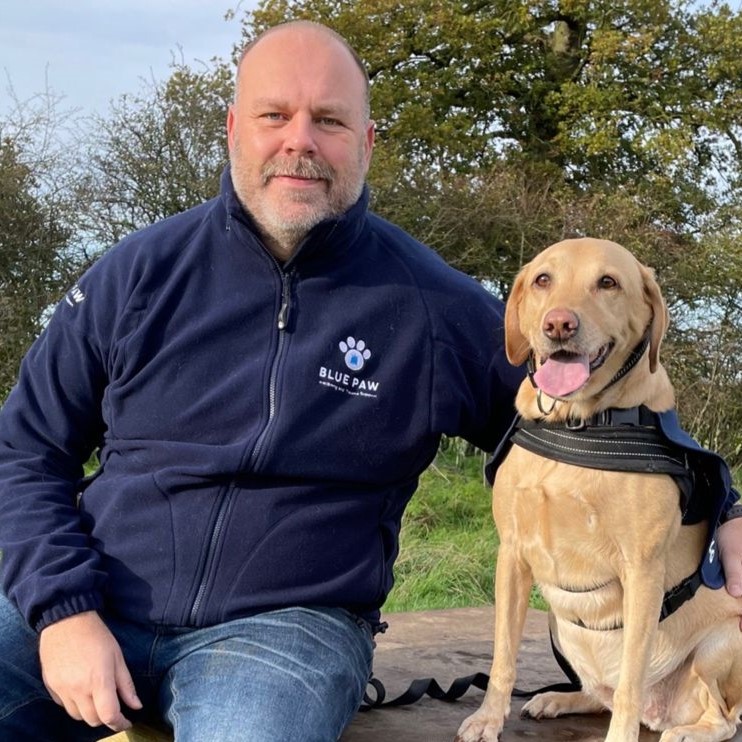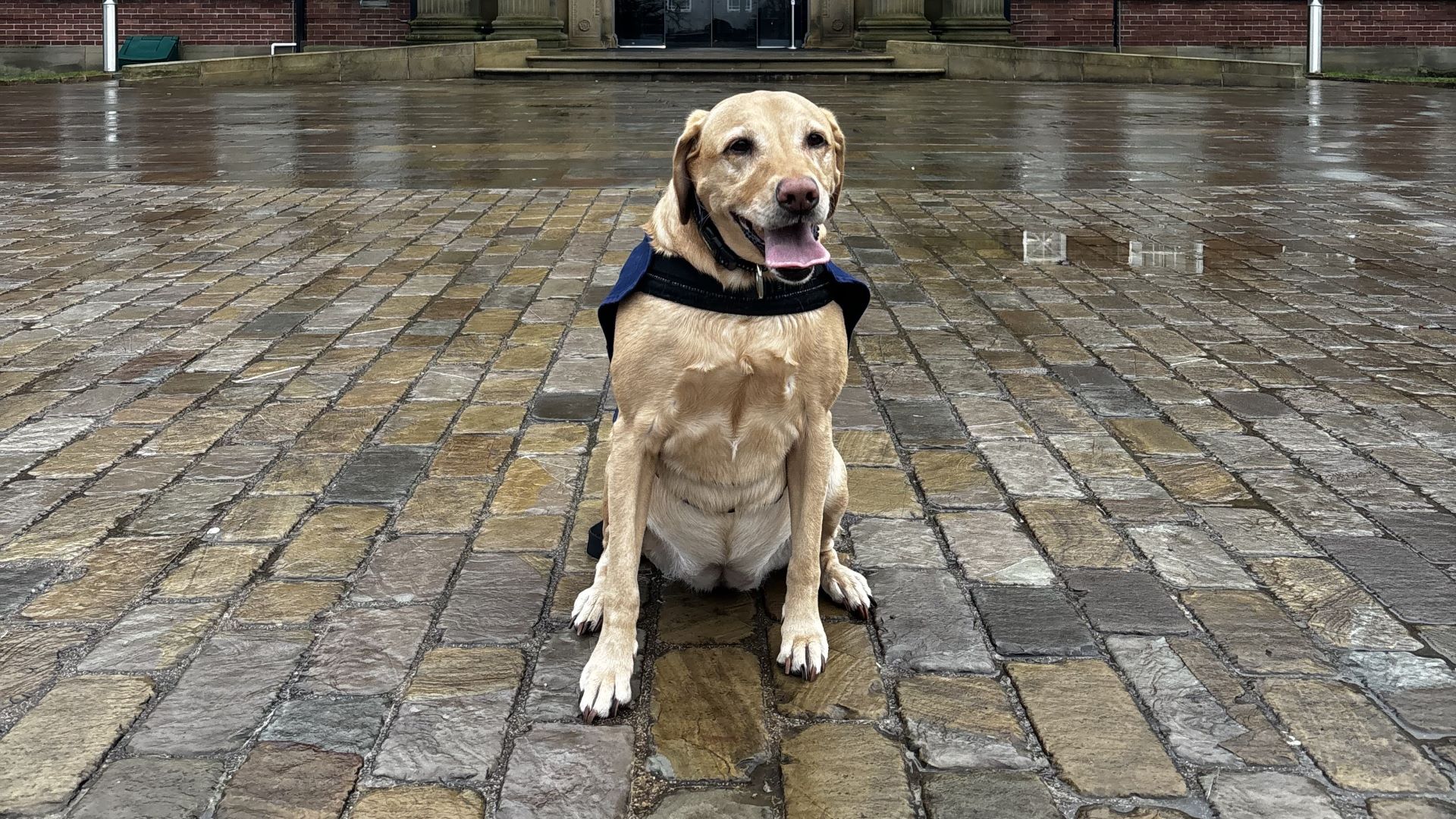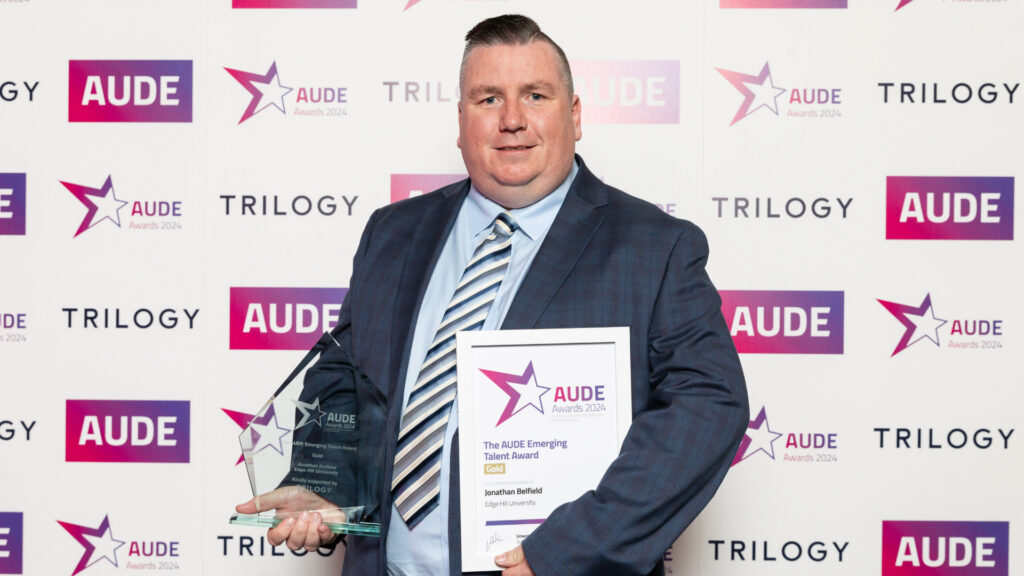Paul Roe, a serving officer of 30 years, was a first responder at Paddington, Hatfield, Potters Bar and Ufton Nervet – crashes between 1999 and 2004 that killed 49 people.
As well as the sights and the sounds of dealing with major disasters, Paul, who worked for Cambridgeshire Police and British Transport Police, was also once knocked unconscious while on duty.
After seeking specialist help, he was diagnosed with PTSD.
Paul is now on a beat of a different kind – encouraging positive discussions around mental health within police forces across the country.
Attending the University with his well-being dog Holly, he told Edge Hill BSC Professional Policing students of the need for emergency workers to protect their mental health while dealing with the job’s challenges.

He believes “the tide is turning” in challenging a “man-up” culture and proof of that is the role of Holly, a nine-year-old labrador, who helps officers to talk and relax.
Paul, who worked with wellbeing and trauma support dogs as part of the National Police Wellbeing Service, now delivers talks through his own Blue Paw Wellbeing and Trauma Support organisation: bluepaw.co.uk

“The tide is turning a little bit now and the world has changed in relation to wellbeing. Everyone associates PTSD with the armed services but there is a lot of undiagnosed PTSD in the emergency services from what they are seeing day to day.
“Students need to have a foundation level of trauma because once they get into service they will experience trauma, death, destruction and the rest. They need to be prepared for what they are going to see but also have an understanding that they can ask for help off the back of that.”
Paul Roe, Blue Paw
Dr Jude Towers, senior lecturer in Policing at Edge Hill, said: “We’re starting to talk to our students about trauma and being aware of the type of incidents they will be dealing with in the job.
“We’re aware that while this is an academic degree, most of our students go into policing, criminal justice, probation, or prisons, so we’re building in as many guest speakers, practical workshops and trips as possible as preparation for the world they will encounter once working. As part of this, we thought bringing Paul and Holly in would be ideal.”
Edge Hill University students seeking advice or support about mental health can contact our wellbeing team.
For more information about courses and studying at Edge Hill University, go to: edgehill.ac.uk/study.
February 22, 2024



